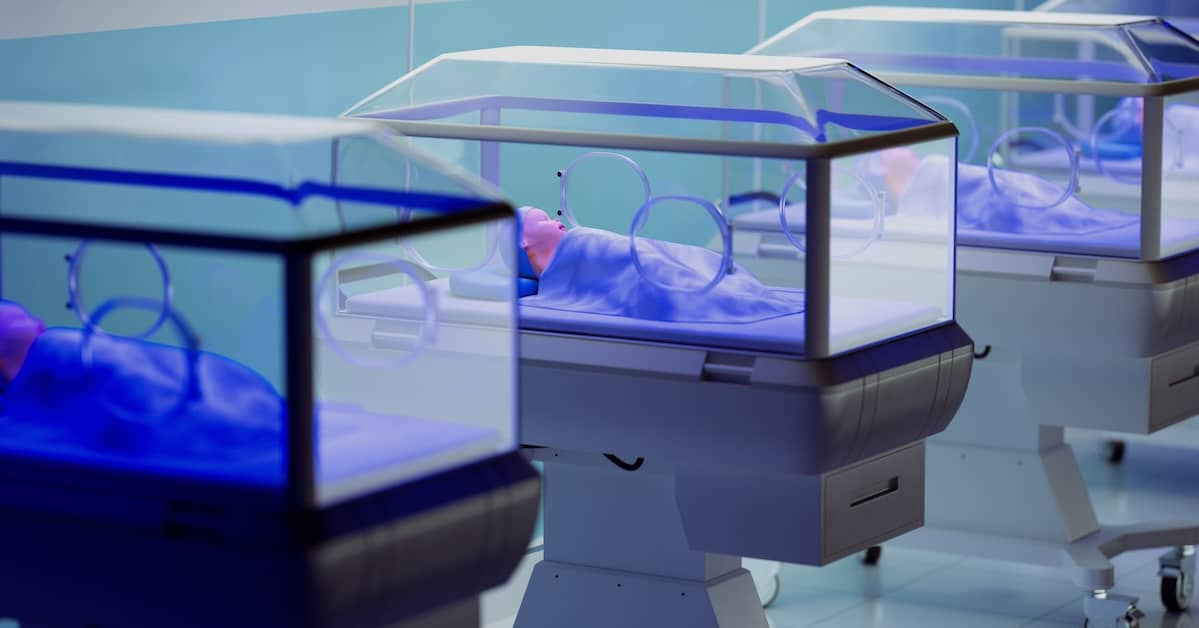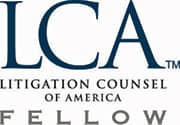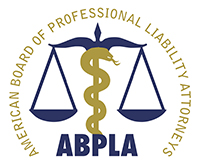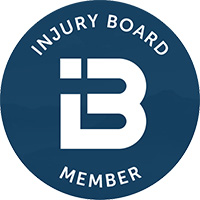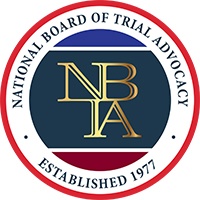
TBI Symptoms After a Car Accident
According to the Brain Trauma Foundation, around 2.5 million Americans are currently living with a traumatic brain injury (TBI). The most common cause of TBI is falls, but motor vehicle accidents remain a major cause as well. Nearly 16% of all TBI cases are related to car accidents in Rhode Island.
Brain injuries are common among drivers and passengers involved in serious collisions. This makes it important to be familiar with common TBI symptoms after a car accident—particularly because some symptoms may take time to appear. If you are concerned that you or a loved one may have suffered a traumatic brain injury in a crash, it is vital that you seek medical treatment promptly and talk to an experienced attorney right away.
The trusted legal team at Mandell, Boisclair, & Mandell has a proven record of success in cases involving car wrecks and brain injuries in and around Providence. We are committed to helping our clients recover the full and fair compensation to which they are entitled under the law.
To schedule a FREE consultation with one of the brain injury attorneys at Mandell, Boisclair & Mandell, call 401-273-8330 today. Based in Providence, our car accident lawyers assist individuals and families in Cranston, Pawtucket, Central Falls, and surrounding areas seek justice following serious injury.
Types of Brain Injuries Common in Car Accidents
Different types of brain injury can occur in car accidents. Among the most common are:
- Concussion. Also known as mild TBI, concussions are caused by a jolt or blow to the head, such as may accompany sudden stops or collisions.
- Contusion. Bruises on the brain, known as contusions, may be caused by impact with a steering wheel, dashboard, or other hard objects.
- Coup-Contrecoup. When a high-speed collision causes the head to snap back and forth, the brain may be damaged on the opposite side of impact. Injuries caused by this type of forceful movement are known as coup-contrecoup injuries.
- Diffuse Axonal. Damaged nerve fibers caused by violent shaking or rotation of the head can result in diffuse axonal injury. These are common in rollovers and side-impact collisions.
- Penetrating. Flying debris or shattered vehicle parts can penetrate the skull and enter brain tissue. These injuries can be fatal.
TBI is classified by its severity—mild, moderate, or severe—depending on the type of injury sustained and the amount of damage it has and may continue to do. The symptoms of TBI after a car accident will be influenced by its severity.
It is important to remember that, even if your TBI has been diagnosed as “minor,” there are potential long-term financial, physical, and emotional consequences. During your free case review, we will carefully evaluate your damages to help you determine what your brain injury claim may be worth.
What Are the Signs of a Traumatic Brain Injury After a Car Accident?
While individual car accident victims’ symptoms can vary, the symptoms of mild, moderate, and severe TBI resulting from car accidents are as follows:
Symptoms of Severe TBI After a Car Accident
A traumatic brain injury is generally considered to be severe if it results in unconsciousness lasting longer than six hours. Depending on the severity of the injury, a car accident victim’s unconsciousness could last a day, several days, or even several weeks or months.
Along with a prolonged period of unconsciousness, other signs that a car accident victim may have suffered a severe traumatic brain injury include:
- No visual response to stimulation
- Profound memory loss, confusion, and disorientation
- Difficulty forming (or inability to form) new memories
- Loss of muscle or fine motor control
- Chronic severe headaches
- Chronic sleep disturbances, insomnia, and other sleep disorders
- Permanent hearing or vision impairment
In addition to the symptoms discussed above, drivers and passengers who suffer TBI in car accidents may experience various other cognitive and psychological effects. Affective symptoms and disorders—such as generalized anxiety and major depression—are common among car accident victims who have experienced traumatic brain injury. TBI victims may also notice that they have difficulty performing routine tasks, grasping new concepts, or completing their work responsibilities. Prompt medical intervention is critical for avoiding preventable long-term effects.
Symptoms of Moderate TBI After a Car Accident
A traumatic brain injury is generally considered to be moderate if it results in complete loss of consciousness for up to six hours or if an accident victim, while not fully conscious, can open their eyes in response to stimulation. These TBIs often involve bleeding or swelling within the brain, and they can have significant long-term consequences without prompt medical intervention. Symptoms of a moderate traumatic brain injury may include:
- Significant memory loss
- Inability to stay awake without stimulation
- Extreme sleep disturbances
- Long-term confusion or disorientation
- Seizures
- Vomiting
- Vision problems
As with severe traumatic brain injury, mental health issues may accompany moderate TBI. In addition to affective symptoms and disorders, irritability, impulsive behavior, and general indifference may also accompany these injuries.
Symptoms of Mild TBI After a Car Accident
A traumatic brain injury is generally considered to be mild if the victim remains conscious and alert. Concussions are the most common form of mild TBI, and car accident victims routinely suffer these injuries due to:
- Impacts with airbags, dashboards, seatbacks, and other objects
- Shaking or side-to-side motion during a side-impact collision
- Forward-and-backward motion (often resulting in whiplash) during a front-end or rear-end collision
- Being struck by debris in the vehicle cabin
- Hitting the ground after being ejected from a vehicle
A bad headache or migraine is typically the first sign of a concussion or other mild TBI. Other symptoms may include:
- Difficulty concentrating
- Temporary confusion
- Temporary disorientation
- Short-term memory loss (i.e., being unable to remember the accident)
- Fatigue or difficulty staying awake
- Sleep disturbances
- Tinnitus (ringing in the ears)
Mild TBI may seem to indicate “minor,” but this is not always the case. They can negatively impact the victim’s quality of life. Even mild TBIs should be brought to the attention of a medical professional to determine if treatment is needed.
Diagnostic Procedures for Brain Injuries
Not every TBI sustained in a car accident will produce immediate symptoms. Because of this, it is always a good idea to see your doctor as soon as possible after a crash. Timely diagnosis is essential for preventing some of the long-term effects of TBI.
Diagnostic procedures that may be used to assess the extent of brain injury include:
- Neurological exams to assess motor and sensory skills, hearing and speech, vision, coordination, and cognitive abilities.
- Computed Tomography (CT) scan to detect fractures, bleeding, clots, and swelling.
- Magnetic Resonance Imaging (MRI) to identify changes in brain tissue that may be too subtle for CT scans.
- Electroencephalogram (EEG) to detect seizures and abnormal brain activity.
- Neuropsychological assessments to assess cognitive function and make a plan for rehabilitation.
Far from an exhaustive list of potential diagnostic tools, the medical community may use any number of methods—including simple observation—to determine if brain injury is present. Once identified, a comprehensive treatment plan should be implemented immediately to prevent additional damage and begin the recovery process.
Treatment and the TBI Recovery Process
Depending on when you notice TBI symptoms after a car accident, treatment may include:
- Emergency Interventions. These may include stabilization to ensure adequate oxygen and blood flow along with surgery to remove hematomas, repair skull fractures, or relieve pressure.
- Medications. Diuretics to reduce fluid buildup and intracranial pressure, anti-seizure drugs, and when necessary, coma-inducing drugs to allow the brain to rest and heal.
- Rehabilitation Therapies. Recovery from TBI may require a combination of therapies, including physical therapy, occupational therapy, speech therapy, and cognitive therapy.
- Long-Term Care. TBI may require assisted living care. Patients at home may still need continued outpatient therapy, support groups, and home care services.
Covering the Costs of Treatment for TBI After a Car Accident
Treatment for a traumatic brain injury can cost hundreds of thousands—sometimes millions—of dollars over a lifetime. These costs are only compounded when you are unable to work or forced to work in a limited capacity due to your injury. Drivers and passengers who suffer TBI due to another driver’s negligence (or issues such as road or vehicle defects) can seek compensation for medical expenses, lost wages, physical and emotional suffering, and more. The car accident TBI lawyers at Mandell, Boisclair & Mandell are here to help.
If you have sustained a brain injury in a car accident in Providence or a nearby area of Rhode Island, we can help you evaluate your options and understand your rights. Contact us online or call us today to schedule your cost- and obligation-free case evaluation with one of our attorneys.

